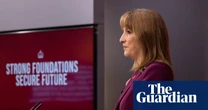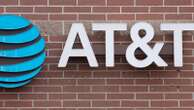Hello and welcome to Modern CEO! I’m Stephanie Mehta, CEO and chief content officer of Mansueto Ventures. Each week, this newsletter explores inclusive approaches to leadership drawn from conversations with executives and entrepreneurs, and from the pages of Inc. and Fast Company. If you received this newsletter from a friend, you can sign up to get it yourself every Monday morning.
Jessi Hempel didn’t set out to build a community. In 2018, LinkedIn, the professional network and social media platform, asked the former Wired writer to create a podcast as part of an audio strategy to reach members when they weren’t on the site. Hempel says that her new employer had even identified a name for the show: Hello Monday. “What they hadn’t identified was, What the heck should the podcast be about?” she recalls. “And they gave that opportunity completely over to me. They said optimistically, ‘Your core trait here is curiosity. You’ll figure it out.’” (Disclosure: Hempel and I worked together for seven years at Fortune, and I consider her a friend.)
What Hempel “figured out” is that audiences craved more than just smart interviews with CEOs, notables, and career and workplace experts, which Hello Monday with Jessi Hempel has been delivering weekly since March 2019. They also wanted connection.
Moving beyond the earbuds
In March 2020, when COVID-19 was declared a pandemic and many companies began operating remotely, Hempel and senior producer Sarah Storm started producing Hello Monday twice a week. “Podcasts feel so intimate. You’ve got somebody speaking in your ear,” she says. “But the truth is, it’s actually one-sided conversation. And we did not like that.”
A few weeks into the pandemic, Hempel and Storm launched Hello Monday Office Hours, a virtual gathering place for listeners to ask questions, seek advice, and find fellowship. (Office Hours is also the name of a LinkedIn live events platform.) Four years later, Hello Monday Office Hours is still going strong. Hempel estimates that 300 people show up every week, and she says she’s on a first-name basis with 50 to 75 of them. “I know where they live, what they’re interested in, what they’re trying to learn, and I know that they know each other,” she says.
The power of connection
This direct connection with the Hello Monday community has led Hempel to stay ahead of the curve on workplace trends. She cites burnout as an example of a work-life topic that Hello Monday deeply explored as early as July 2020—a full two or three months before mainstream publications began covering the phenomenon.
LinkedIn doesn’t disclose how many listeners download Hello Monday weekly, but the podcast routinely ranks in Apple’s top 50 career shows, according to Chartable. The accompanying Hello Monday newsletter has more than 365,000 subscribers.
When I ask Hempel why she thinks Hello Monday has enjoyed such strength among its audience, without hesitation she says: “Listening.” She adds: “So many content creators are so good at creating, but what our listeners want is for someone to say, ‘Hey, Amy in Ohio, I hear you. You should talk to Jason in New Hampshire because that audiobook thing you’re dreaming about, he knows something about that.’”
She says she hopes that her audience will mimic that behavior—listening, sharing, making connections—in their own smaller circles.
Why leaders must listen
Hempel’s superpower—listening—is great guidance for leaders, especially when you consider that many of her loyal followers could be your employees. They come to Hello Monday and Office Hours looking for tips on how to navigate the office, change careers, or be more productive, and to feel heard. By listening, leaders have the potential to help retain flight risks or unlock creativity.
And while Hempel didn’t set out to build a community, she quickly realized that nurturing such groups isn’t about the platforms or tools people use to connect. Though Office Hours is a tool operated by LinkedIn, most community members see it simply as a way to connect. “When you have authentic community, the tools don’t matter that much,” she says. “In my experience, community is a place that you can show up where someone says, You belong here.”
How do you build community?
How do you listen and build community as a leader—and has listening improved your workplaces? Send your examples to me at [email protected] and your answer may form the basis of a future newsletter.
Read more: Easy listening
- The AI for Humans podcast may be the most entertaining way to learn about artificial intelligence
- 6 podcasts with strategic insights for CEOs and entrepreneurs
- Why Acquired is your boss’s favorite podcast








No comments